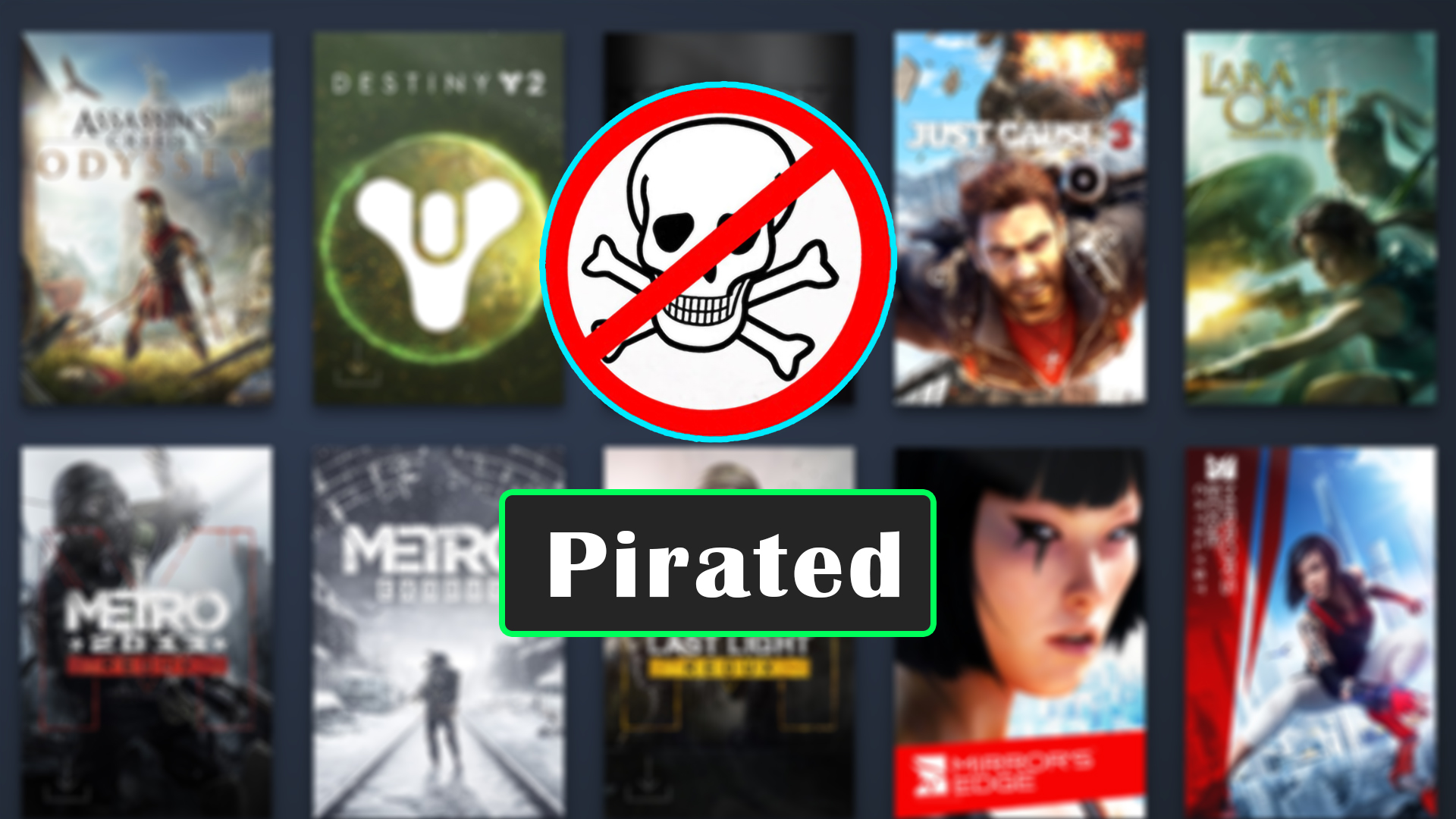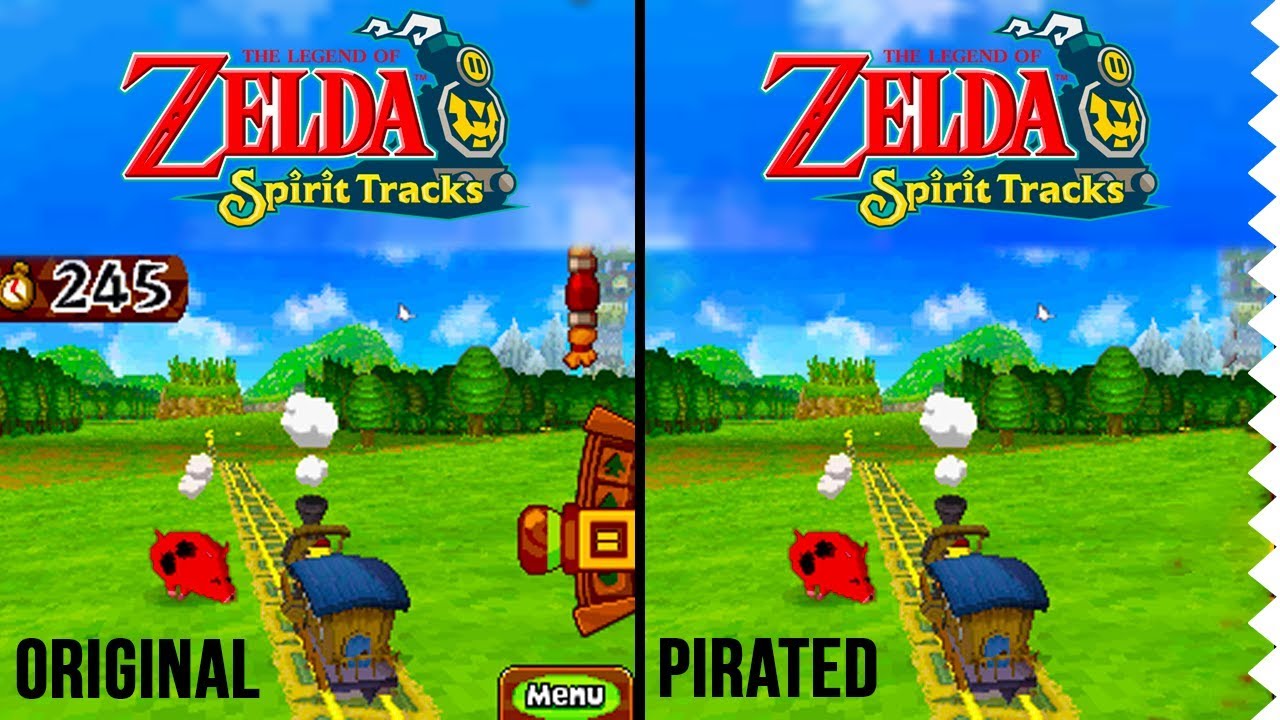When it comes to gaming content on YouTube, the lines get a bit blurry, especially regarding pirated games. Many wonder if featuring such games is a legal gray area or outright illegal. This post will explore the implications of showcasing pirated games on YouTube, diving into the definitions, legal perspectives, and ethical considerations that content creators need to keep in mind.
The Definition of Pirated Games

Pirated games refer to video games that are illegally copied, distributed, or played without proper licensing or permission from the copyright holders. The act of piracy can manifest in different forms, including:
- Illegally Downloading: Obtaining a game from unauthorized websites that offer free downloads of paid content.
- Sharing Pirated Copies: Distributing copies of games through peer-to-peer networks or unauthorized forums.
- Using Cracked Versions: Playing games that have been modified to bypass security measures, allowing access without purchase.
Pirated games often come from three main sources:
- Software Cracks: Programs designed to disable digital rights management (DRM) protections.
- Game Mods: Alterations of existing games that are shared without the permission of the original developers.
- Emulators: Software that mimics older gaming consoles, sometimes allowing access to titles that might not be legally available.
It's essential to understand that not all modifications or emulations are illegal, but if they involve using copyrighted material without permission, they fall into the category of piracy. As a gamer or content creator, recognizing what constitutes pirated material is crucial when considering your content for YouTube.
Understanding Copyright Laws

Copyright laws are essential to protecting the rights of creators, including game developers, filmmakers, and musicians. The foundation of these laws rests on the idea that creators should have exclusive rights to their original works. This means that unauthorized copying, distribution, or publishing of a work can lead to serious legal consequences.
In the realm of video games, copyright law applies to various elements, including:
- Code: The programming behind the game is considered proprietary.
- Graphics: All visual elements, including characters and environments, are protected.
- Audio: Soundtracks and sound effects also fall under these protections.
- Storylines: The narrative and dialogue contribute to the game's uniqueness.
When it comes to sharing or displaying pirated games on platforms like YouTube, it’s crucial to understand that doing so is typically a violation of copyright laws. Even if a YouTuber provides commentary or gameplay footage, using pirated content can put them at risk of copyright strikes, legal action, or channel bans.
Some exemptions do exist, like the Fair Use Doctrine, which allows for limited use of copyrighted materials without permission, primarily for commentary, criticism, or educational purposes. However, using pirated games generally does not qualify for this exemption. YouTube’s policies also advocate for respecting copyright, making it vital for creators to be cautious and informed when using game footage, especially if it’s pirated.
The Impact of Pirating on Game Developers
The act of pirating games can have a profound impact on game developers, both financially and creatively. While it might seem harmless to some, pirating undermines the hard work and investment that developers put into creating games. Here’s why:
- Loss of Revenue: Each pirated copy represents a lost sale. For indie developers or smaller studios, this can be crippling.
- Increased Development Costs: Developers often invest significant time and money in their projects, and piracy can lead to an increased need for protective measures and anti-piracy technology.
- Market Perception: When games are easily accessible for free, it can devalue the brand and the perceived quality of the product.
- Resource Diversion: Developers may need to redirect resources from game development to legal matters concerning copyrights and piracy.
Moreover, piracy can stunt innovation within the industry. If revenue is consistently threatened, developers might opt for safer, more formulaic projects rather than experimenting with new ideas or gameplay mechanics. This stagnation can lead to a lack of variety in the games available to consumers, ultimately impacting everyone who enjoys gaming.
In summary, while it might seem convenient to download or share pirated games, the negative consequences are far-reaching and can stifle creativity within the gaming industry. Supporting game developers by purchasing legitimate copies is vital for the continued growth and diversification of the gaming landscape.
YouTube's Policies on Pirated Content
YouTube has a set of strict policies regarding pirated content which reflect its commitment to copyright laws and content ownership. If you're considering featuring pirated games on your channel, it’s crucial to understand these policies and how they apply.
Firstly, *YouTube employs a Content ID system that automatically detects copyrighted material. When a video is uploaded, it’s scanned against a vast database of copyrighted works. If it finds a match, the content owner can choose to block the video, monetize it, or track its performance. Here are some important points to consider:
- Copyright Strikes: If you consistently upload pirated games, you risk receiving copyright strikes. Three strikes can lead to your channel being terminated.
- Monetization Issues: Even if you think you're in the clear with fair use, featuring pirated content can complicate your ability to monetize your videos.
- Community Guidelines: Besides copyright, YouTube’s community guidelines prohibit content that promotes illegal activities, including piracy.
So, while you might think showcasing pirated games is fun or a pathway to more views, it could jeopardize your entire YouTube channel. Always remember, legal options are more sustainable in the long run, and they contribute to a more ethical gaming community!
Legal Consequences of Featuring Pirated Games
Discussing the legal consequences of featuring pirated games on platforms like YouTube can be a bit complex but vital for content creators. When it comes to copyright infringement, the repercussions can range significantly based on jurisdiction and the specifics of the situation. Let’s break down some potential legal pitfalls:
- Cease and Desist Letters: Game publishers may send a cease and desist letter, instructing you to stop using their content. Ignoring these can escalate the situation.
- Lawsuits: In severe cases, companies could choose to take legal action against you, which can be costly and damaging.
- Fines: Engaging in the distribution of pirated content can lead to hefty fines, sometimes ranging from hundreds to millions of dollars depending on the scale of the infringement.
Moreover, it's essential to consider the ethical ramifications. While you might enjoy playing pirated games, you’re undermining the creators and developers who put their heart and soul into making them. Contributing to piracy not only impacts your channel's future but also the gaming industry as a whole. So, the takeaway is to think carefully* before jumping into the world of pirated games on YouTube—it’s a slippery slope with significant legal and ethical consequences!
7. Ethical Perspectives on Piracy in Gaming
When diving into the world of pirated games, it’s essential to consider the ethical implications. Many gamers find themselves torn, often questioning whether pirating a game is justified. Let's explore some of the various ethical perspectives surrounding this hot topic.
- The "Consumer's Right" Argument: Some argue that consumers should have the right to access games regardless of cost. They believe that high prices and limited availability justify pirating games, especially in developing countries where pricing models may not be viable.
- The Developer's Perspective: On the flip side, developers and publishers invest time and money into creating these games. Piracy can lead to significant financial losses, affecting the livelihood of everyone involved in the development process, from designers to voice actors.
- Impact on Future Titles: When players opt for pirated versions, it can potentially impact future game releases. Lower sales figures from legitimate copies may deter developers from creating sequels or new games, ultimately stifling innovation in the industry.
- Digital Rights Management (DRM) Concerns: Some criticize corporate attempts at DRM, feeling these practices limit the fair use rights of consumers. The rationale here leans towards pirating as a protest against overly restrictive policies rather than a simple theft of intellectual property.
- Community and Peer Pressure: In gaming communities, some view piracy as a shared experience, believing that if others are doing it, it’s acceptable. This social pressure can normalize the practice but also raises questions about individual responsibility.
In essence, the ethical landscape regarding piracy in gaming is complex and filled with contrasting viewpoints. Engaging in this discussion can help gamers understand the full picture and perhaps reconsider their own practices.
8. Alternatives to Pirated Games in Content Creation
If you're a content creator looking to showcase gaming without turning to piracy, worry not! There are plenty of legitimate alternatives that not only keep you on the right side of the law but also support the gaming industry. Let’s explore some viable options.
- Free-to-Play Games: There’s a plethora of free-to-play games available that are not only entertaining but also legal. Titles like Warframe, Apex Legends, and Fortnite allow you to engage and create content without any ethical or legal hurdles.
- Game Demos: Many developers release demos or trial versions of their games. This is a perfect way to showcase upcoming titles and attract viewers while honoring the developers' rights.
- Open Source Games: Look into open-source or indie games that are free to play and often allow for more creative freedom in content creation. Games like 0 A.D. and Battle for Wesnoth can offer unique content without the piracy dilemma.
- Purchase Games: This might seem like a no-brainer, but purchasing games legally supports the industry. Many platforms often run sales, making it budget-friendly to buy games outright.
- Stream Games with Permission: Some developers actively encourage streamers and content creators. Look for titles that have specific guidelines for creators, allowing you to share gameplay while respecting copyright.
By utilizing these alternatives, you not only keep your content authentic and legally compliant, but you also participate positively in the gaming ecosystem. Remember, supporting the creators is ultimately beneficial for the community as a whole!
Can Pirated Games Be Featured on YouTube? Legal and Ethical Considerations
When it comes to featuring pirated games on YouTube, various legal and ethical considerations come into play. Understanding these aspects is crucial for content creators who wish to share their gaming experiences without infringing on intellectual property rights.
Legal Considerations:
- Copyright Laws: Pirated games are illegal copies of originals and violating copyright laws can lead to severe penalties, including fines and legal action.
- Fair Use Doctrine: Some may argue that providing commentary or critique of a pirated game could fall under fair use. However, this is often a gray area and varies by jurisdiction.
- Platform Policies: YouTube has strict policies against copyright infringement. Videos featuring pirated content could be subject to takedown notices or account strikes.
Ethical Considerations:
- Supporting Developers: Promoting pirated games undermines the developers and publishers who spend time and resources creating them. Content creators should consider the long-term impact of their choices on the gaming industry.
- Community Standards: Featuring pirated games can lead to a negative perception in the gaming community, affecting the creator's reputation and viewer trust.
In summary, featuring pirated games on YouTube poses significant legal risks and ethical dilemmas that can impact both content creators and the wider gaming community. It's essential to respect intellectual property rights and support legitimate gaming practices.
 admin
admin








